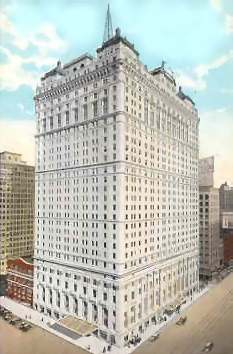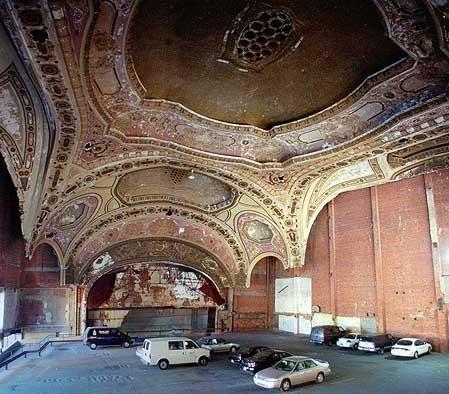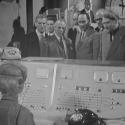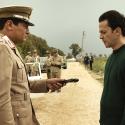The only time I've ever been to Detroit was in 2004, in pursuit of assorted rock stars on the Vote for Change tour. Reader, it was weird. The atmosphere in the deserted streets was deathly, as if an invading army had swarmed into town, committed hideous atrocities and then moved on. The decaying architecture from America's golden industrial age looked unsettlingly like the set for The Omega Man, in which Charlton Heston fought a solitary war against an army of nocturnal psychopaths.
These feelings returned vividly as I watched Julien Temple's stupendous Requiem for Detroit?, a thrilling piece of film-making that swooped through the city's history and its spectacular blossoming into the hub of the global automobile industry, before charting its equally astounding decline. Detroit became emblematic of the ascent of the industrialised West, with its immense factories, its workers sucked in from the southern USA and Europe to cash in on booming employment and high wages, its freeways, suburbs and shopping malls. In the 1900s its confident, eloquent architecture earned it the nickname of "the Paris of the West".
Yet today, huge chunks of downtown Detroit are burned out, derelict, or even overgrown by foliage, as if the urban jungle has dispensed with the "urban" part. Property prices have shed rows of noughts and decades of "white flight" have seen the inner city's population plummet to around 800,000 from a peak of two million. In this former mecca of the automobile, there now aren't enough motorists to create a morning rush hour. Poetry lovers may hear Shelley's lines about "the decay / Of that colossal wreck, boundless and bare" ringing in their ears.
Before overseas competition, oil price shocks and credit crunches punched gaping holes in Detroit's chrome dreams, the city was exceedingly proud of itself, and its feats were recorded unstintingly on film. The growth of the Ford Motor Company and its revolutionary production lines were reconstructed before our eyes, with Temple often using the technique of projecting archive film onto the city's disintegrating monuments. Chrysler and General Motors followed Ford's lead, and the so-called "Big Three" grew so powerful that they were able to create their own satellite cities outside central Detroit, annexing formidable industrial and financial control for themselves.
Not that the fall of Detroit was wholly unexpected. Its brutal turbo-capitalism belonged to a different era, and a city entirely moulded to fit the needs of a single industry ought to have given some thought to the term "diversification", yet even now the ailing automotive giants, propped up by taxpayer cash, find it hard to believe the party's over. In fact, the original central Detroit car plants stopped building cars 50 or more years ago, long before the current financial upheavals, but their disintegrating remains still carry a haunting emotional charge. We were guided through some of the city's choicest ruins by Logan X, who describes himself as an "urban explorer" and can deliver chapter and verse over which manufacturer built what and where. He was equally informative about the dog-fighting boom that now thrives amid the debris, the armed gangs who prowl the wreckage scavenging for valuable metals or piping, and the all-night raves that used to rock the old Packard factory (right: the Cadillac Hotel in Detroit's heyday)
Temple, a bit of a music buff, skilfully tinted and counterpointed his story with choice selections from Detroit's finest. Eminem's "Lose Yourself" kept recurring like the hammer-blow of Fate, and appropriately comes from the soundtrack of his movie 8 Mile, named after the street which symbolically divides Detroit's rotting heart from its affluent suburbs. Alice Cooper's "School's Out" soundtracked the news that 29 schools closed in Detroit during 2009, while the MC5's "Kick Out the Jams" played over newsreels of the Twelfth Street race riots which left 43 people dead in 1967. There was commentary from Martha Reeves (latterly a Detroit councilwoman), Mitch Ryder (from the Detroit Wheels), and from poet, White Panther and former MC5 manager John Sinclair.
As a veteran anti-capitalist, Sinclair is rather enjoying Detroit's de-industrialisation and the collapse of the consumer society, and Motor City is witnessing the growth of a new kind of counter-culture. The Goodwill Reconstruction Project is providing employment for the previously unemployable through its mission to pull down and recycle dilapidated properties, while the flight of retailers from the city centre has prompted an "urban agricultural movement" in which people are growing their own food. You can even spot rabbits, raccoons and deer roaming the sidewalks. In places, at least, the mean streets are becoming green streets.















Add comment